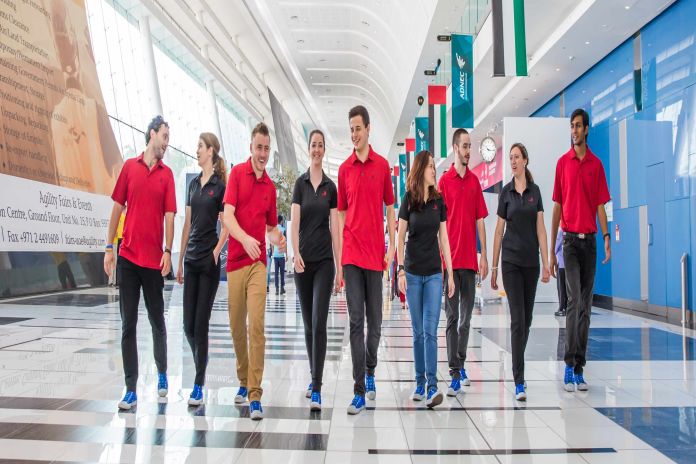By Jack Dalrymple CEO, Global Voices
This article is part of a series in which OECD experts and thought leaders – from around the world and all parts of society – address the COVID-19 crisis, discussing and developing solutions now and for the future. It aims to foster the fruitful exchange of expertise and perspectives across fields to help us rise to this critical challenge. Opinions expressed do not necessarily represent the views of the OECD.
As if being a young person did not present its own unique challenges without having to contend with a global pandemic. Whilst young people have historically demonstrated their ability to take on challenges and show what leadership looks like, COVID-19 presents unparalleled experiences. Many talk of 2020 as a watershed moment: an opportunity to reset how we do meaningful youth engagement; a challenge that allows us to think creatively and with agility and innovation. Young people aged between 15-30 years of age have witnessed, experienced (either peripherally or personally) the effects of three global disruptions: the effects of the terrorist attacks of September 11, 2001; the 2008 Global Financial Crisis; and COVID-19. This is not including the gradual effects of an impending climate crisis.
COVID-19’s disproportionate impact on young people
During COVID-19, young people have been disproportionately affected. In OECD countries, youth unemployment is increasing. Young people are overrepresented in the heaviest hit industries (i.e. hospitality, retail, arts and culture) and have higher rates of casual employment. These industries are the first to be affected during public health lockdowns that attempt to curb the spread of infections.
Young people may be the most connected and digitally literate generation, but this does not necessarily mean they are immune from the mental health effects of isolation. On the contrary, research from the United States shows that young people are most vulnerable to the mental health implications of lockdowns, experiencing the highest levels of distress relative to other age groups.
Whether it is helping all young people manage their mental health, or targeted support for those financially disadvantaged or regionally isolated who lack access to employment and educational opportunities, it is clear that young people are solution architects for the problems they inherit. Only by understanding the lives of young people can their unique challenges and solutions be appreciated and incorporated into viable policy alternatives. It is therefore crucial that decision-makers connect and work directly with young people, harnessing their lived experience and the policy expertise to tackle the unique challenges youth are facing.
Youth-led organisations are stepping up to the plate to take on challenges: The “Youth & Smart Confinement” (European Association for Local Democracy, 2020) initiative in Morocco has organised regular webinars on social media to discuss topics such as “Art & Confinement” and “What are the best uses of digital tools” to keep youth socially engaged. In Tunisia, the International Organization for Youth Development has organised an online course for young people to acquire entrepreneurial skills from home.
Read the OECD Policy Brief Youth and COVID-19: Response, Recovery and Resilience and more on key policy responses

What has COVID-19 revealed about the resilience of young people?
COVID-19 has unveiled – widely – what young people have always known about themselves: we are resilient and resourceful irrespective of the odds that we are up against. Young people have historically demonstrated that they are willing to take positions of leadership and offer insightful and meaningful contributions into complex policy problems. Global Voices empowers young people to use their skills, capacity and unique strengths to regenerate their communities. Without undermining and omitting the challenges and traumas COVID-19 has exposed, young people have demonstrated:
Systems and process knowledge: perhaps more so than other groups in society, young people have demonstrated their ability, albeit grudgingly, to adjust to changes in education and associated risks (e.g. adaptability and embracing of online learning delivery models). Further, they have been able to navigate complex systems that have become even more fragile during COVID-19.
Resourcefulness and perseverance: whilst COVID-19 has presented unique challenges to how we relate to one another, young people have led the way in creating online trends: sharing meals online; virtual board games; impromptu concerts; tools that have made unprecedented times manageable. Their resourcefulness has paved the way for creating alternative platforms and mechanisms that imagine flexible consultation models. Young people have demonstrated that a scarcity mindset is something that should be left in the rear-view mirror in favour of a co-operative thinking.
Also on the Forum Network: Embracing Disruption: Youth, skills, and resilience by David Hoey, CEO at World Skills International
Through no fault of their own, young people become the heirs of policies and processes to “solve” and “resolve” these issues with little or limited consultation. Young people have called for an adjustment of priorities to refocus on well-being and validate a “new normal” centred on mindfulness.
The exposure to such shocks has long-lasting consequences for young people’s access to employment, health and well-being as well as opportunities for an anxiety-free future. Despite this, young people have sought innovative solutions: solutions that are person- and care-centred rather than motivated by efficient processes; solutions that incorporate inclusive and equitable growth; solutions that are driven by creating climate-resilient communities. Young people’s ability to empower, encourage and engage to form creative solutions is one that will hold us in good stead for creating resilient communities. As we look back on 2020, will we consider what fragilities in multilateralism has COVID-19 exposed? Will we ask how can crisis resilience be embedded into youth engagement in the future? Will we ensure youth engagement and innovation are better integrated into government decision-making?
Source: https://www.oecd-forum.org/posts/resilience-against-the-odds-lessons-from-young-people-in-the-covid-19-environment
Youth and COVID-19 tackling coronavirus contributing to a global effort – document





